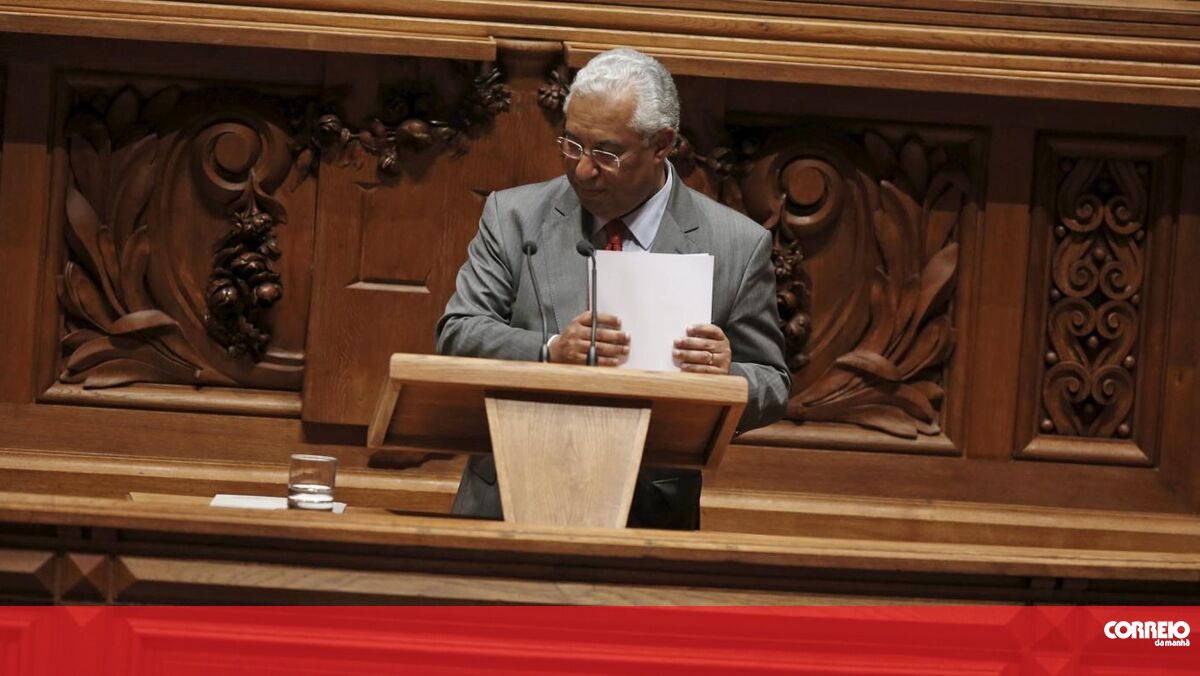Prime Minister António Costa this Wednesday recalled the previous positions of the new leader of the Social Democrats Bench, Joaquim Miranda Sarmento, regarding the salaries of civil servants and fiscal policy, and said that “passism” has returned to the PSD.
During a State of the Nation debate in the Assembly of the Republic, António Costa referred to the “policy synthesis framework that Miranda Sarmento advocates in a guide he published in 2019”, in which he said that the newly elected PSD parliamentary leader advocated a “wage freeze” , as well as “social benefits” and “reduction of investments in municipalities and regions to the values of 2016”.
According to PS Secretary General and Prime Minister, in tax matters Miranda Sarmento proposes in this guide “the application of a minimum IRC fee for 302,000 companies that are not required to pay IRC.”
“And finally, I would say that this is even one of those measures that reflects the deep thought of social solidarity of the NDP, now led by Luis Montenegro and Miranda Sarmento, is worth listening to: the creation of a minimum IRS of 40 euros. for 2 million and through the Portuguese who are exempt from the fee because they are below the subsistence minimum,” he added.
“This is the economic and fiscal thinking of the old new old PSD,” António Costa concluded.
In a request to the Bureau of the Assembly of the Republic, Miranda Sarmento advised the Prime Minister “for the sake of intellectual honesty, to read the whole book and not the table his adviser gave him.”
“I am about to read a very promising book by Your Excellency, because the table is so rich that I can only imagine what the general content of the book is,” António Costa replied.
The Prime Minister used this document in response to the parliamentary leader of the PS, who devoted his speech to criticizing the Social Democrats. Eurico Brillante Diaz recalled the “cuts in pensions and wages” made during the “troika” and said that “the SDP has not changed course.”
In his response, António Costa backed up Brillante Dias’ statement by stating that the SDP, now led by Luis Montenegro, “went back” and brought back the “past” government of Pedro Passos Coelho, “with Maria Luis Albuquerque and the whole constellation of passismo in the new leadership.”
After that, the prime minister directly criticized Joaquim Miranda Sarmento, who this Wednesday made his debut in plenary session as the parliamentary leader of the PSD, pointing to him as “the link between what was the leadership of Dr. Rui Rio and what is clean and tough passis.”
Maria Luis Albuquerque, former finance minister, was number two on the list presented by Luis Montenegro to the PSD National Council, elected in Congress earlier this month.
Still using Miranda Sarmento’s “leadership”, António Costa emphasized the proposal to “revoke the licenses of civil servants who work in trade unions”, noting that “it immediately reveals the whole political thought of what a union is in a democratic society.”
“As for the performance of companies, he only proposes the following: a 50% reduction in training activities that are not co-financed by the European Union,” he said.
Joaquim Miranda Sarmento, an economist, was elected last week as the SDP’s parliamentary leader, replacing Paulo Mota Pinta, who resigned at the request of the party’s new president, Luis Montenegro, who is not an MP.
Montenegro has already chosen Miranda Sarmento to coordinate its strategic move towards the PSD Congress. During the leadership of Rui Rio, the economist chaired the National Strategic Council and was a member of the PSD National Political Commission.
In his plenary debut as leader of the parliament, Sarmento accused António Costa’s governments of ruining the country, which was opposed by the prime minister and the PS parliamentary leader, countering that in recent years, Portugal has moved closer to the European Union again.
Recalling the troika period, Brillante Diaz believed that “an act of remorse in this chamber would solve most of this problem” and added: “But wanting to turn the page without making mismanagement for four years, that’s what we won’t let you” .
Author: Lusa
Source: CM Jornal




